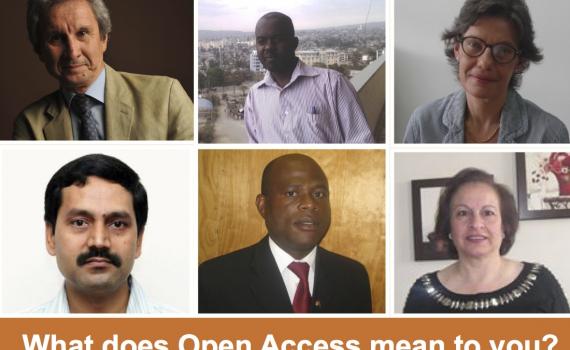
In celebration of Open Access Week 2013, we reached out to librarians and partners within our global EIFL network to answer a very simple question:
Below are some of the responses.
Senegal
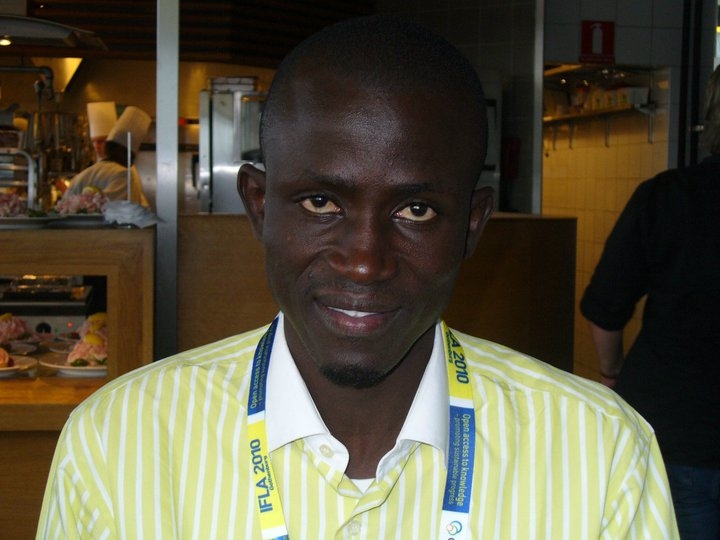
“The production of human intelligence, in terms of research results and knowledge, widely available to humanity through the Internet.”
Mandiaye Ndiaye, University Cheikh Anta Diop de Dakar Library and EIFL OA country coordinator in Senegal
Armenia
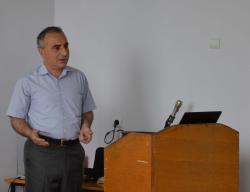 “That all my students have unlimited access to any paper and book, they do not need to ask others to get them. It means they are happy to submit their papers to Open Access journals as well, giving others the possibility to freely access their material”.
“That all my students have unlimited access to any paper and book, they do not need to ask others to get them. It means they are happy to submit their papers to Open Access journals as well, giving others the possibility to freely access their material”.
Tigran Zakaryan, Institute of Radiophysics and Electronics, Armenian National Academy of Sciences, and EIFL-OA country coordinator in Armenia.
Fiji
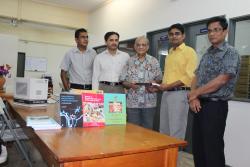 “That online research outputs or any item can be freely accessed by anyone in the world without any kind of access restrictions especially on use imposed by copyright agreements.”
“That online research outputs or any item can be freely accessed by anyone in the world without any kind of access restrictions especially on use imposed by copyright agreements.”
Dr. Chaminda Jayasundara, Fiji National University Library and EIFL country coordinator in Fiji. Picture (from left ) is Mr. Kashmir Makun, Dr. Tanveer naqvi, Prof. K. Jayaraman, Dr. Chaminda Jayasundara and Dr. Don Karunanayake.
Ghana
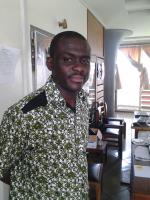 “Scholars now have more channels to gain impact from their research results, greater readership and visibility. This may not have been possible when they published in only commercial journals because of the low subscriptions and readership."
“Scholars now have more channels to gain impact from their research results, greater readership and visibility. This may not have been possible when they published in only commercial journals because of the low subscriptions and readership."
Richard Lamptey, Kwame Nkrumah University of Science and Technology (KNUST) Library and EIFL-OA country coordinator in Ghana.
Kenya
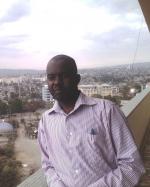 "The commitment to freely create, preserve and disseminate knowledge for the good of all."
"The commitment to freely create, preserve and disseminate knowledge for the good of all."
Evans Njoroge, communication student @UNISA, digital librarian practitioner and consultant in library automation, digital libraries, information management, content management, web 2.0 and communication services; EIFL-FOSS country coordinator in Kenya.
Kyrgyz Republic
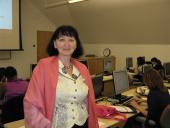 “Free and open access to scientific information and educational resources, ensuring equal access of people to information and knowledge.”
“Free and open access to scientific information and educational resources, ensuring equal access of people to information and knowledge.”
Safia Rafikova, American University of Central Asia Library and EIFL-OA country coordinator in Kyrgyz Republic.
Malawi
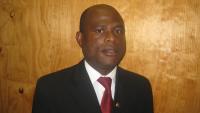 “A free means of providing maximum visibility and usage of research outputs to less privileged students, faculty and researchers.”
“A free means of providing maximum visibility and usage of research outputs to less privileged students, faculty and researchers.”
Fiskani Ngwira, Mzuzu University Library and EIFL-OA country coordinator in Malawi.
Lithuania
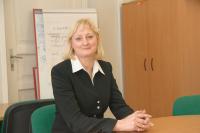 “The possibility to access the worldwide scientific information and be better informed about research results in the field. As a researcher, I receive background and ideas for continuation of my research. As a librarian, I can provide more information resources to our University community.”
“The possibility to access the worldwide scientific information and be better informed about research results in the field. As a researcher, I receive background and ideas for continuation of my research. As a librarian, I can provide more information resources to our University community.”
Gintarė Tautkevičienė, Kaunas University of Technology and EIFL-OA country coordinator in Lithuania
Belarus
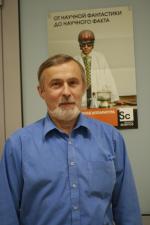 “It is the best strategy to succeed in innovation development. Open Access is the future of scholarly communication.”
“It is the best strategy to succeed in innovation development. Open Access is the future of scholarly communication.”
Viatcheslav Britchkovski, National Library of Belarus and EIFL-OA country coordinator in Belarus
Moldova
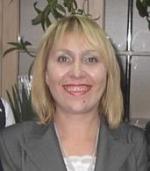 “An expression of consciousness and knowledge, challenge and innovation. It is the promotion of this concept in Moldova, motivation of the scientific community for publishing in OA, stimulation of creating IR and advocacy for OA inclusion in the Moldovan legislation.”
“An expression of consciousness and knowledge, challenge and innovation. It is the promotion of this concept in Moldova, motivation of the scientific community for publishing in OA, stimulation of creating IR and advocacy for OA inclusion in the Moldovan legislation.”
Natalia Cheradi, Scientific Library of the Academy of Economic Studies of Moldova and EIFL-OA country coordinator in Moldova.
Nepal
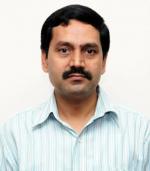 "No restriction in getting and sharing knowledge. Any scholarly creations, research output, literary works such as articles, books should be easily available to its seekers. Resources should be available online should be free of charge."
"No restriction in getting and sharing knowledge. Any scholarly creations, research output, literary works such as articles, books should be easily available to its seekers. Resources should be available online should be free of charge."
Jagadish Aryal, Social Science Baha Library and EIFL-OA country coordinator in Nepal.
Nigeria
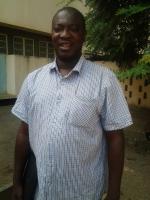 “Access to current and quality research work for my teaching and research work at no cost. It means being able to communicate my research work to wider stakeholders in both developing and developed countries.”
“Access to current and quality research work for my teaching and research work at no cost. It means being able to communicate my research work to wider stakeholders in both developing and developed countries.”
Ezra Shiloba Gbaje, Department of Library and Information Science, Ahmadu Bello University, and EIFL-OA country coordinator in Nigeria.
Palestine
 "An information revolution against censorship, price barriers, restricted publishing and copyright laws which would lead to more valuable literature and research. When these resources are freely accessed and used by scholars, their work will enrich and enhance research worldwide."
"An information revolution against censorship, price barriers, restricted publishing and copyright laws which would lead to more valuable literature and research. When these resources are freely accessed and used by scholars, their work will enrich and enhance research worldwide."
Diana Sayej-Naser, Library Director, Birzeit University Main Library and EIFL country coordinator in Palestine.
Poland
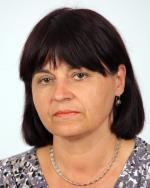 “Openness is a category that is very important to me. To me, open access means access to knowledge, freedom of debate and communication. Everything which is open is worth thinking about if it works well for the society. That is why I work in the area of open science.”
“Openness is a category that is very important to me. To me, open access means access to knowledge, freedom of debate and communication. Everything which is open is worth thinking about if it works well for the society. That is why I work in the area of open science.”
Bożena Bednarek-Michalska, Nicolaus Copernicus University Library and EIFL-OA country coordinator in Poland.
Serbia
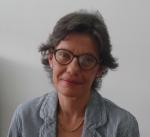 “To read and to learn without barriers. A perfect way to exchange (and cross-link) all data through OAI-PMH, and to promote local content from smaller scientific communities. A witness to how changings in technology, causes changings in other standardized procedures. A way to survive with constantly decreasing libraries budgets. A lot of work on education on our end-users in Author’s role of OA articles.”
“To read and to learn without barriers. A perfect way to exchange (and cross-link) all data through OAI-PMH, and to promote local content from smaller scientific communities. A witness to how changings in technology, causes changings in other standardized procedures. A way to survive with constantly decreasing libraries budgets. A lot of work on education on our end-users in Author’s role of OA articles.”
Biljana Kosanovic, National Library of Serbia and Serbian Library Consortium for Coordinated Acquisition (KoBSON), EIFL country coordinator in Serbia.
Tanzania
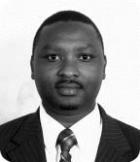 “Total change of scholarly communication. Greater freedom of sharing knowledge that will build a well informed society.”
“Total change of scholarly communication. Greater freedom of sharing knowledge that will build a well informed society.”
Paul Muneja, Information Management Specialist and Digital Services Consultant, University of Dar es Salaam, and EIFL-OA country coordinator in Tanzania.
Uzbekistan
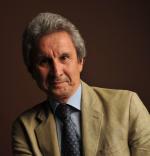 “For me, Open Access means good cooperation with scientists of other countries to exchange information and spread articles and ideas. [It means] the development of science, education and business in my country and using these advances to progress humanity.”
“For me, Open Access means good cooperation with scientists of other countries to exchange information and spread articles and ideas. [It means] the development of science, education and business in my country and using these advances to progress humanity.”
Marat Rakhmatullaev, Tashkent University of Information Technologies and EIFL country coordinator in Uzbekistan.
Uganda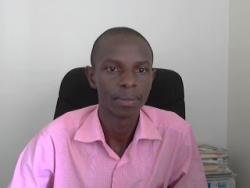
"For me, Open Access means that all research output is made freely available to those in need without any delays and restrictions of any kind. When research is done and knowledge generated, it should be made public with the use of Internet without any limitations."
Nicholas Kamusiime, Uganda Christian University Library and EIFL-OA country coordinator in Uganda
Zimbabwe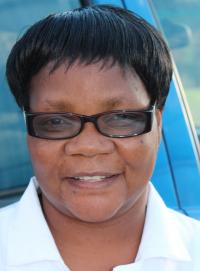
"For me, open access means providing an enabling environment for research to take place anywhere in the world without any barriers to scholarly information."
Gloria Kadyamatimba, University Librarian at Chinhoyi University of Technology and EIFL-OA country coordinator in Zimbabwe
Sudan
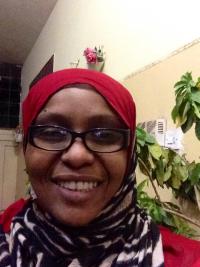
"Unrestricted and unlimited access to knowledge."
Rania M. H. Baleela, Assistant Professor, Department of Zoology, and Head Quality Control Unit Faculty of Science, University of Khartoum, EIFL-OA country coordinator in Sudan
Uganda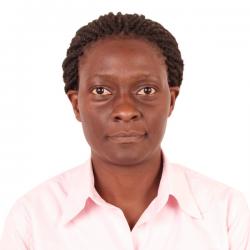
"Removal of access barriers, especially the high subscription costs. It is management and visibility of scholarly work produced by community members, and finally, increased availability and access to quality scholarly work which has enhanced the library's information collection."
Judith Nannozi, Librarian at Uganda Martyrs Unviersity, EIFL country coordinator in Uganda
Mongolia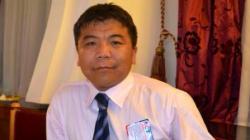
"Open access is freedom to access and publish scientific knowledge and empower sustainable development."
L.Gantulga, Executive director, Mongolian Libraries Consortium, and EIFL-OA country coordinator in Mongolia
SHARE / PRINT







